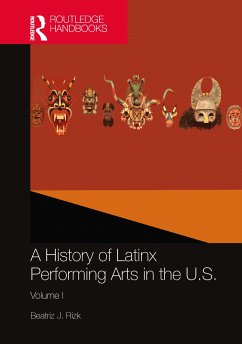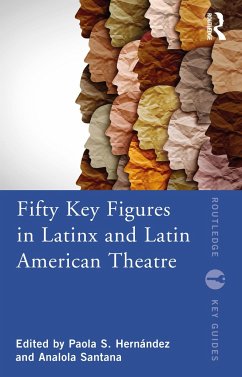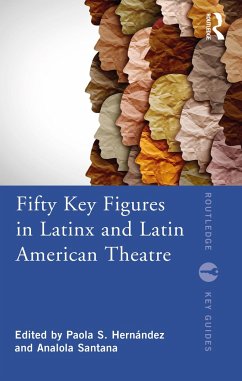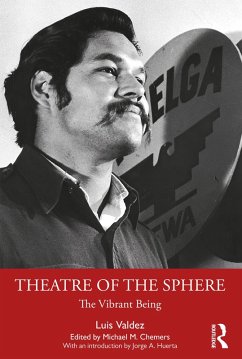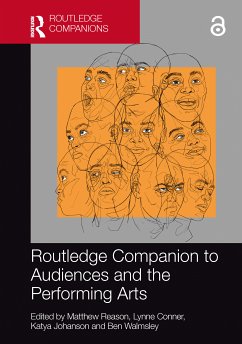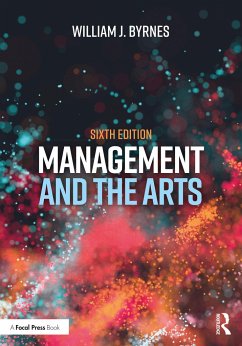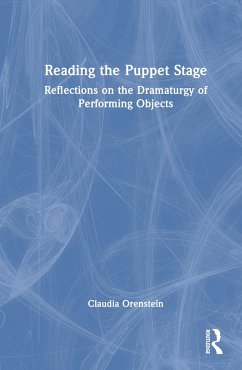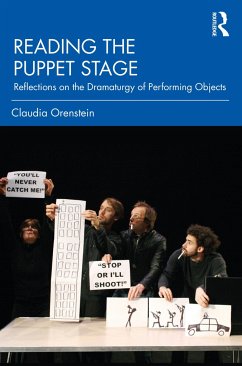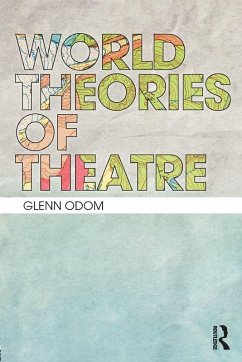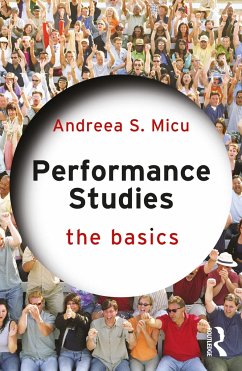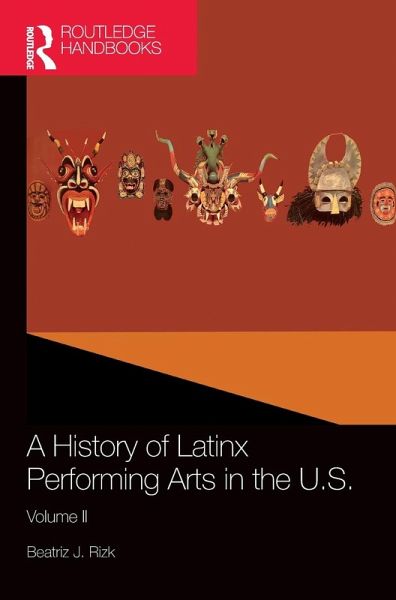
A History of Latinx Performing Arts in the U.S.
Volume II
Versandkostenfrei!
Versandfertig in 6-10 Tagen
229,99 €
inkl. MwSt.
Weitere Ausgaben:

PAYBACK Punkte
115 °P sammeln!
A History of Latinx Performing Arts in the U.S. provides a comprehensive overview of the development of the Latinx performing arts in what is now the U.S. since the sixteenth century.This book combines theories and philosophical thought developed in a wide spectrum of disciplines - such as anthropology, sociology, gender studies, feminism, and linguistics, among others - and productions' reviews, historical context, and political implications. Split into two volumes, these books offer interpretations and representations of a wide range of Latinxs' lived experiences in the U.S. Volume I provide...
A History of Latinx Performing Arts in the U.S. provides a comprehensive overview of the development of the Latinx performing arts in what is now the U.S. since the sixteenth century.
This book combines theories and philosophical thought developed in a wide spectrum of disciplines - such as anthropology, sociology, gender studies, feminism, and linguistics, among others - and productions' reviews, historical context, and political implications. Split into two volumes, these books offer interpretations and representations of a wide range of Latinxs' lived experiences in the U.S. Volume I provides a chronological overview of the evolution of the Latinx community within the U.S., spanning from the 1500s to today, with an emphasis on the Chicano artistic renaissance initiated by Luis Valdez and the Teatro Campesino in the 1960s. Volume II continues, looking more in depth at the experiences of Latinx individuals on theatre and performance, including Miguel Piñero, Lin-Manuel Miranda, María Irene Fornés, Nilo Cruz, and John Leguizamo, as well as the important role of transnational migration in Latinx communities and identities across the U.S.
A History of Latinx Performing Arts in the U.S. offers an accessible and comprehensive understanding of the field and is ideal for students, researchers, and instructors of theatre studies with an interest in the diverse and complex history of Latinx theatre and performance.
This book combines theories and philosophical thought developed in a wide spectrum of disciplines - such as anthropology, sociology, gender studies, feminism, and linguistics, among others - and productions' reviews, historical context, and political implications. Split into two volumes, these books offer interpretations and representations of a wide range of Latinxs' lived experiences in the U.S. Volume I provides a chronological overview of the evolution of the Latinx community within the U.S., spanning from the 1500s to today, with an emphasis on the Chicano artistic renaissance initiated by Luis Valdez and the Teatro Campesino in the 1960s. Volume II continues, looking more in depth at the experiences of Latinx individuals on theatre and performance, including Miguel Piñero, Lin-Manuel Miranda, María Irene Fornés, Nilo Cruz, and John Leguizamo, as well as the important role of transnational migration in Latinx communities and identities across the U.S.
A History of Latinx Performing Arts in the U.S. offers an accessible and comprehensive understanding of the field and is ideal for students, researchers, and instructors of theatre studies with an interest in the diverse and complex history of Latinx theatre and performance.





